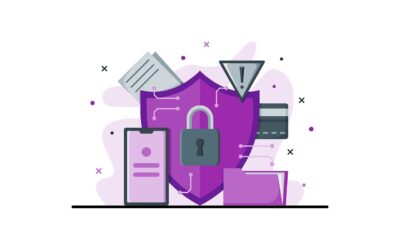Cybercrimes and cyber-attacks are one of the fastest-growing crimes in the US, rapidly increasing in complexity, cost, and of course magnitude. The second-largest ever data breach was suffered by Marriott near the end of 2018, disclosed the personal information of up to 500 million users. As for the largest Cybercrime, the Yahoo hack, all 3 billion accounts were affected. According to HERJAVEC Group 2019 Official Annual Cybercrime Report, Cybersecurity ventures predicts that there will be 6 billion internet users by 2022, and more than 7.5 billion internet users by 2030. Increasing internet users’ numbers only means increasing numbers of unprepared organizations for cyber-attacks.
So, what can YOU do?
Employee Security Awareness Training
While cyber hacks and cybercrimes get more sophisticated with intricate codes and complicated ways to find a flaw in a system to take over, most cyber-attacks begin because of a simple phishing email. Getting your employees to understand the nature of phishing emails to avoid and report them is half of the problem solved and maintaining a security awareness culture should always be a top priority for every company.
Looking Ahead
While one might think big companies are what’s targeted by cyber-attacks and phishing emails, the small business sector saw its fair share of cybersecurity troubles this year. Companies with 250 and fewer employees had to learn the hard way not to wait for cyber-attacks to happen to deal with them. Nearly half of cyber-attacks target small businesses and that percentage is expected to continue growing.
Threat in technology and Safety in Technology
Despite cybercrimes and cyberattacks continuing to advance, technology is advancing just as fast, promising to make the world wide web a safer place. Having a good IT department, cybersecurity awareness, and having a realistic view of the risks and threats you face will allow your company and organization to protect themselves.
Let our team shield your IT environment from internal and external threats, reduce your risk, and offer peace of mind. Call us at (508) 453-4700 to start a conversation, or send an email



